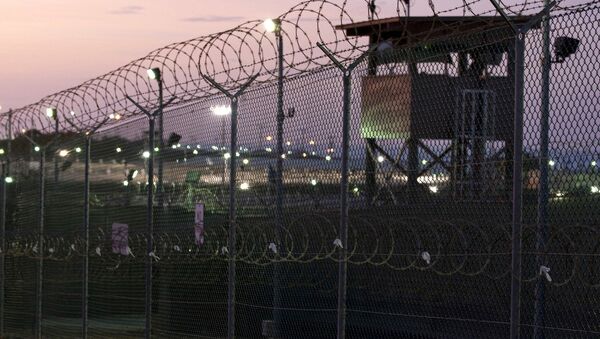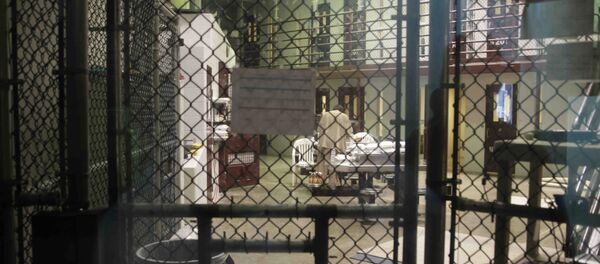According to data from Human Rights First, 242 prisoners were held there at the start of Obama’s presidency; as of November 2015, 107 were still being held there, 90 of whom have been imprisoned for more than ten years.
One detainee, Ahmed Khalfan Ghailani, was transferred to the US for prosecution for his role in the 1998 US Embassy bombings. Four of the 242 died in custody, and 131 prisoners have been transferred, repatriated or resettled under Obama.
Since the prison opened in 2002, a total of 780 detainees have been incarcerated at Guantanamo. The cost of holding a prisoner there is more than $3 million per year.
According to an investigation Reuters published last week, the Pentagon’s refusal to cooperate with the process of transferring, repatriating or resettling prisoners has resulted in them spending years longer than necessary in Guantanamo.
James Dobbins, the State Department special representative to Afghanistan and Pakistan from 2013 to 2014 told the agency that negotiating prisoner releases with the Pentagon was like "punching a pillow,” and that its officials would “come to a meeting, they would not make a counter-argument … and then nothing would happen."
Four Afghan detainees spent an additional four years at Guantanamo after they had been approved for transfer because of the inaction of the Pentagon. The transfers of prisoners to Uruguay, Kazakhstan, Mauritania and Britain were also delayed for months, said Dobbins.
Talking to @democracynow this AM about Guantanamo scandal: DoD sabotaging planned release of @theCCR client Ba Odah https://t.co/I6zxR9JysE
— Omar Farah (@oasfarah) December 30, 2015
Omar Farah, a lawyer for Guantanamo detainee Tariq Ba Odah, on the revelations that Pentagon officials obstruct White House efforts to free prisoners and close the prison.
Yemeni prisoner Tariq Ba Odah, who is on hunger strike, is one of those who remains at Guantanamo despite having been cleared for release five years ago.
“At the moment Tariq Ba Odah is being kept in solitary confinement in Gauntanamo and force fed, even though they could have released him long ago. The government of one country has already said they will take him. In order to agree his release, there just remains a couple of formalities, for example, demonstration of his medical history, so that that country can decide if it can provide the necessary medical assistance for him,” Bo Odah's lawyer, Omar Farah, told RT.

Farah said that in order to fulfil his pledge and finally close the prison during his final year in office, Obama must use his executive powers to force the intervention of the Department of Justice, which could issue court orders forcing the Defense Department to comply with the release of prisoners.




